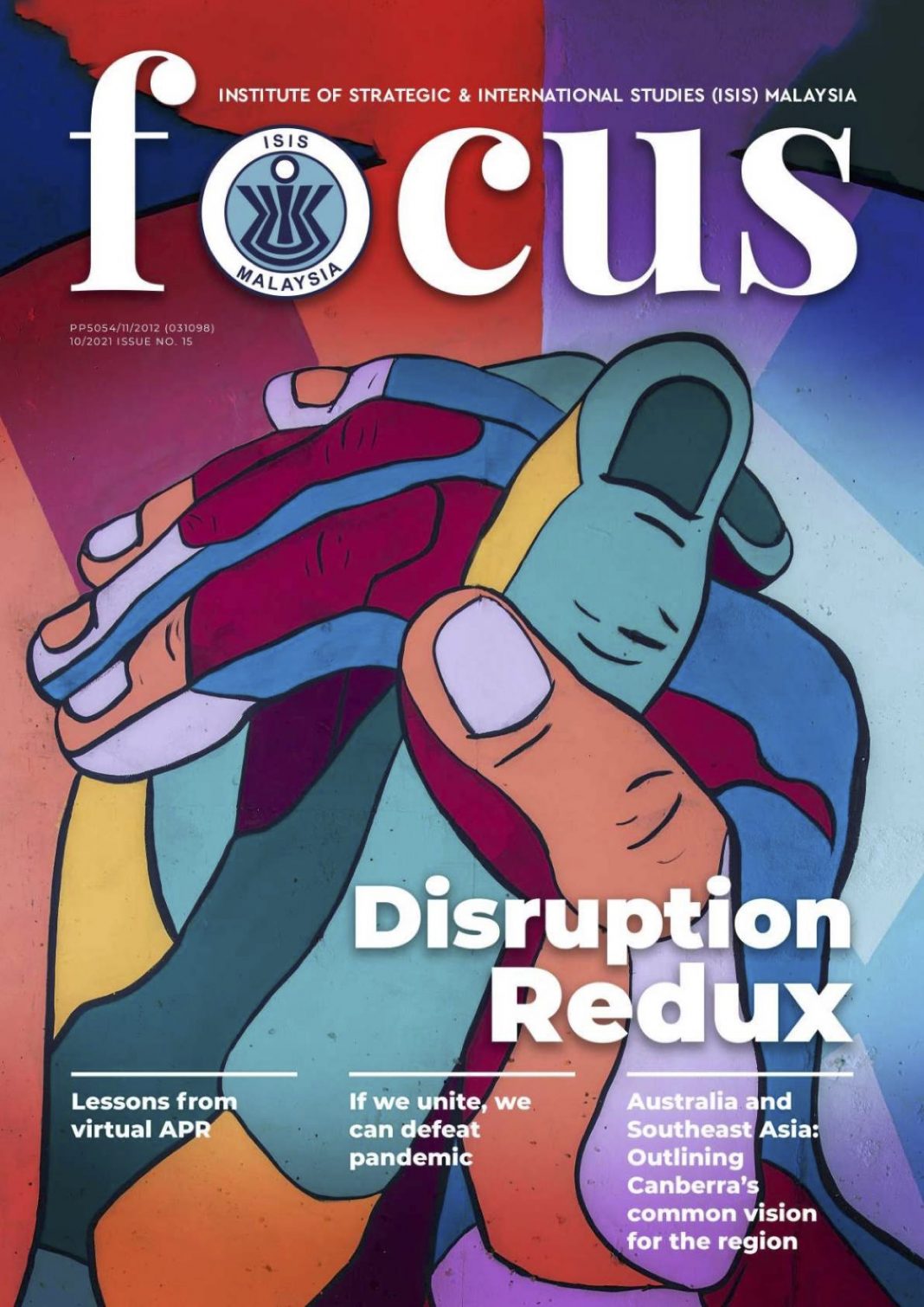Editorial Letter
Our response to age of disruption
THE “focus” of this edition of ISIS Focus is centred on the conversations that shaped ISIS Malaysia’s flagship regional conference, the Asia-Pacific Roundtable (APR). In some respects, the roundtable which was convened for the 34th time on 17 and 18 August 2021, reflected its theme of Disruption Redux. It was not only the first APR to be held virtually, but the first APR that was forcibly postponed.
Disruption has long been a buzzword in the academic and think-tank circuits. Some of the disruptions were then new – ripple effects of the ongoing tech/cyber evolution, challenges to the resource-energy nexus and the enmeshment of climate change to “traditional” security challenges among others. Many are now well ingrained in the smorgasbord of interlinked challenges policymakers have to address.
Other disruptions were more familiar – major power rivalry, terrorism, pandemics and movements by refugees. These are now back with a vengeance, compounded by fissures that were perhaps wilfully ignored and more recent challenges.
We begin this special edition of Focus by examining how the pandemic has failed to “align” the geopolitical focus of the Asia-Pacific region and has instead been amalgamated existing geopolitical inflection points. How will the region fare in its long journey to recovery as strategic competition between the United States and China continue to define this region and its architectures?
On that score, we also hear of how a combination of vaccines, tech and security outreach by members of the Quadrilateral Security Dialogue can enhance its cooperation with Asean, and whether progress, or lack of, in the South China Sea dispute has been marked by strategic opportunism or a failure in diplomacy.
Closer to home, longstanding and familiar challenges remain seemingly unshaken by the pandemic. The most vulnerable in Southeast Asia continue to suffer the brunt of what has shaped up to be an unequal pandemic – requiring urgent coordination of best practices, resources and policies by governments and regional organisations.
In some countries, pandemic mitigation seemed to come hand in hand with increasingly authoritarian governance that chipped away at hard won civil liberties and standards of accountability.
The architectures and norms that shape both national and regional policymaking are in the midst of their greatest disruptive phase since the Second World War. It has been severe enough that the new normal of policymaking appears to be reactive, rather than proactive. This in turn will continue to plague both policymakers and the people whose lives are directly impacted by the decisions of the former. Like it not, uncertainty that comes with this flux and disruptiveness appears to be our new normal, at least for some time to come.
The editors of ISIS Focus remain ever grateful to all contributors and readers for your continued support. We wish you a happy and productive reading!
Contents
Covid’s ‘failure’ to realign Asia-Pacific geopolitics
By Zarina Zainuddin & Muhammad Sinatra
India-US dynamics will determine Quad’s relevance in Southeast Asia
By Yanitha Meena Louis
Transnational crime still thriving despite lockdowns
By Izzah Ibrahim
How nations used Covid-19 to chip away at rights
By Tashny Sukumaran
The South China Sea during Covid-19: Strategic opportunism or failed diplomacy?
By Angeline Tan
Lessons from virtual APR
By Tan Wan-Peng
Australia and Southeast Asia: Outlining Canberra’s common vision for the region
By Dr Justin Lee
If we unite, we can defeat pandemic
By Ouyang Yujing
Recovery elusive, as long as vaccines not distributed equitably
By Harris Zainul
‘Safe’ cyberspace requires multi-stakeholder solutions
By Farlina Said





